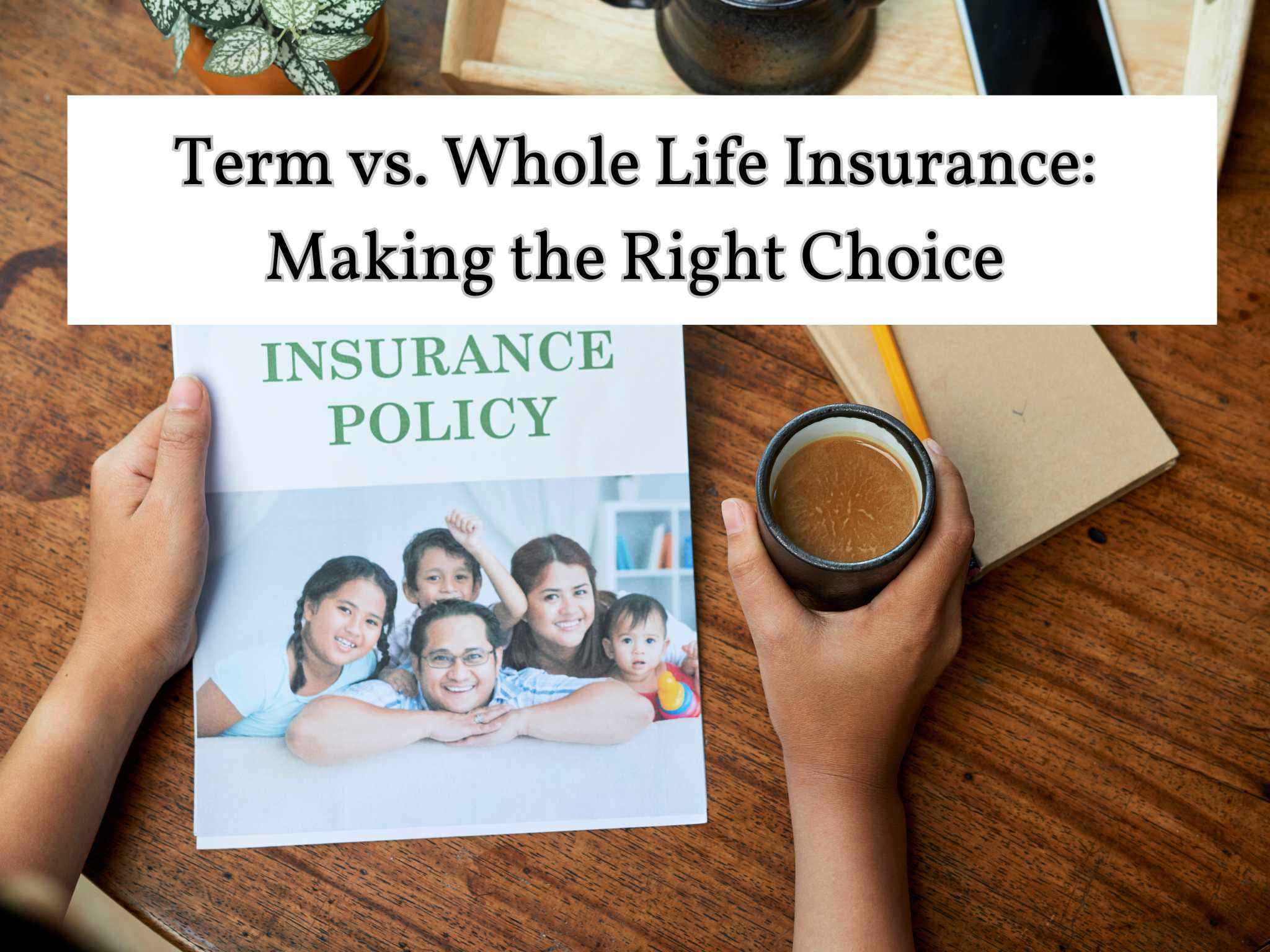Term vs. Whole Life Insurance: A Mom’s Guide to Making the Right Choice
Hey there, super moms! Life insurance might not be the most exciting topic, but it’s one of the most important decisions you’ll make for your family’s future and your peace of mind. I’m not here to convince you to choose one over the other but rather present your options and help you pattern it after your needs as a family. And whether you’re a new mom or a seasoned pro, understanding the ins and outs of life insurance can feel like navigating a maze without help.
I’ve got your back! Let’s break down the two main types of life insurance—term and whole life insurance—so you can make the best choice for your family’s needs.
What is Term Life Insurance?
Term life insurance is like a safety net that covers you for a specific period, or “term,” usually between 10 to 30 years. If something happens to you during this term, your beneficiaries receive a payout. If you outlive the term, the policy ends, and there’s no payout unless you renew it.
Key Features of Term Life Insurance
- Affordable: Term life insurance is generally cheaper than whole life insurance because it doesn’t build cash value.
- Fixed Term: You can choose how long you want the coverage to last, whether it’s 10, 20, or 30 years.
- No Cash Value: This type of insurance is straightforward—it’s all about the death benefit, with no savings component.
Pros and Cons of Term Life Insurance
Pros:
- Lower premiums make it budget-friendly.
- Simple and easy to understand.
- Great for covering temporary financial needs like a mortgage or college tuition.
Cons:
- No cash value accumulation.
- Coverage ends when the term expires, unless renewed at a higher cost.
- No lifelong coverage.
What is Whole Life Insurance?
Whole life insurance is a type of permanent life insurance that covers you for your entire life, as long as you keep paying the premiums. It also has a cash value component that grows over time and can be borrowed against or withdrawn.
Key Features of Whole Life Insurance
- Lifetime Coverage: You’re covered for life, ensuring your beneficiaries get a payout no matter when you pass away.
- Cash Value: Part of your premium goes into a savings account that grows over time. You can borrow against this or withdraw it.
- Level Premiums: Your premiums stay the same throughout your life, making it easier to budget.
Pros and Cons of Whole Life Insurance
Pros:
- Provides lifelong coverage.
- Builds cash value that you can use.
- Premiums remain constant.
Cons:
- Higher premiums compared to term life insurance.
- More complex and harder to understand.
- Cash value growth might be slower than other investments.
Term vs. Whole Life Insurance: A Side-by-Side Comparison
Let’s put these two types of insurance head-to-head to see how they stack up:
| Feature | Term Life Insurance | Whole Life Insurance |
|---|---|---|
| Cost | Lower premiums | Higher premiums |
| Coverage Length | Fixed term (10, 20, 30 years) | Lifetime coverage |
| Cash Value | No | Yes, grows over time |
| Premiums | Fixed for the term, increase upon renewal | Fixed for life |
| Complexity | Simple and straightforward | More complex |
| Ideal For | Temporary financial obligations | Lifelong financial planning and legacy |
Which One is Right for You?
Choosing between term and whole life insurance depends on your financial situation and goals. Here are some scenarios to help you decide:
When Term Life Insurance Might Be the Best Choice
- Budget-Friendly: If you’re looking for affordable coverage during your income-earning years, term life insurance is a great option.
- Temporary Needs: If you have specific financial obligations like a mortgage or your kids’ education, term life insurance can cover those periods.
- Flexibility: If you prefer not to commit to a lifelong policy, term life insurance lets you reassess your needs at the end of the term.
When Whole Life Insurance Might Be the Best Choice
- Lifelong Coverage: If you want to ensure your beneficiaries receive a payout no matter when you pass away, whole life insurance is the way to go.
- Cash Value: If you’re interested in a policy that also serves as a savings vehicle, whole life insurance’s cash value component can be beneficial.
- Estate Planning: If you have significant assets and want to leave a legacy, whole life insurance can be a key part of your estate planning.
Now I now that this is a bit of a headache especially if you are just starting to research on the best insurance for you. But as a mom, it’s essential to weigh the pros and cons of term and whole life insurance before you even begin to consult with professionals. Or else you’re going to be overwhelmed with choices if you don’t study it first.
When it’s time, don’t forget to consult with a financial advisor or insurance professional to help you navigate the complexities of life insurance and choose the policy that best fits your needs. Now that you understand it better, you’d be in the best position to choose the best for your needs and capability without being swayed by a financial advisor who, lets admit it, are representative of companies that they work for. And hey, if you found this guide helpful, why not sign up for our newsletter? You’ll get more tips and tricks straight to your inbox!

